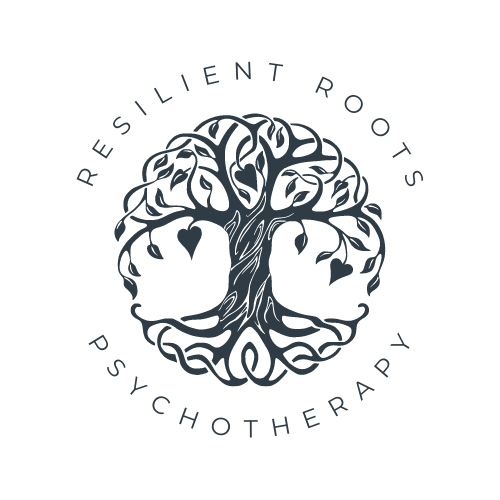Anxiety Therapy: 5 Signs You Need to Seek Professional Help
As someone who has personally struggled with anxiety, I know how challenging it can be to acknowledge that you need help. But I also know that seeking therapy for anxiety can be life-changing. Anxiety is a common mental health issue that affects millions of people worldwide. It can manifest in different ways and impact our lives in various aspects. If you're feeling overwhelmed, stressed, or anxious, you might be wondering if therapy could help you. In this article, we'll explore some of the signs that indicate you might benefit from seeking professional help for your mental health. By identifying these signs, you can take the first step towards managing your symptoms and improving your mental health. So, let's dive in and learn more about when to consider therapy for anxiety.
What is anxiety?
Most people experience anxiety at some point in their lives. It's that feeling of unease or nervousness that you get before a big event, like a job interview or a first date. But for some people, it can be much more intense and pervasive, interfering with their daily lives and relationships.
Anxiety can show up in a variety of ways, including physical symptoms like a racing heart or sweating, or mental symptoms like racing thoughts or worries. It can be triggered by specific situations, like social events or travel, or it can be a more general feeling that's present all the time. Whatever form it takes, anxiety can be overwhelming and exhausting. But with the right help, it's possible to manage and overcome it.
What is therapy for anxiety?
When it comes to anxiety, therapy can be a powerful tool in helping you to manage and reduce your symptoms. Therapy can help you gain insight into your anxiety and its underlying causes. By working with a trained therapist, you can identify the triggers that set off your anxiety and learn new coping skills to manage those triggers when they arise. Therapy can also help you develop a deeper understanding of your thoughts and emotions, giving you the tools you need to break free from negative thought patterns and worry.
Furthermore, therapy provides a safe and non-judgmental space where you can explore your feelings and concerns. It's an opportunity to talk openly and honestly about your experiences, free from the fear of being misunderstood or judged. A therapist can also help you identify and work through any other mental health issues that might be contributing to your anxiety, such as depression, grief, or trauma.
Therapy for anxiety can take many different forms, depending on your individual needs and preferences. Some people find that cognitive-behavioral therapy (CBT) is particularly helpful, as it focuses on changing the negative thought patterns and behaviors that contribute to anxiety. Other types of therapy, such as mindfulness-based therapies, or psychodynamic therapy, may also be effective for some individuals.
Signs you should seek therapy to manage anxiety:
1. You're constantly worried and stressed.
It's important to remember that anxiety is a normal human emotion, and it's something that everyone experiences from time to time. However, when anxiety becomes a constant presence in your life, it can significantly affect your overall health. Perhaps you've noticed yourself ruminating on worst-case scenarios, feeling on edge, or struggling to focus on anything else but your worries. No matter what the situation is, you find yourself unable to manage how overwhelmed you feel.
2. Your anxiety is interfering with your daily life.
Anxiety can affect every aspect of your life, including your work and relationships. If you find that your anxiety is interfering with your ability to do things you used to enjoy, or is causing you to avoid certain situations or people, it's a sign that you need help. The sooner you seek therapy, the sooner you can start to take control of your anxiety and start living the life you want.
3. You're experiencing physical symptoms.
Anxiety doesn't just affect your mind - it can also affect your body. If you're experiencing physical symptoms like headaches, nausea, or muscle tension, and you've ruled out any underlying medical conditions, it's a sign that your anxiety may be the cause.
Anxiety can also interfere with your ability to fall asleep or stay asleep, leading to insomnia or other sleep disturbances. This can create a vicious cycle where lack of sleep exacerbates anxiety, and anxiety makes it harder to get the rest you need. Talking to a therapist can help. They can teach you relaxation techniques, such as deep breathing or meditation, to help calm your mind and promote restful sleep.
4. Your relationships are suffering.
Anxiety can make it difficult to connect with others, and it can put a strain on your relationships. If you find that it is causing conflicts with your partner, friends, or family members, it's time to seek help. Therapy can help you learn how to communicate more effectively, set boundaries, and build healthier relationships.
5. You feel like you're stuck.
Living with anxiety can be a daily struggle. You might feel like you're constantly battling your own mind, unable to break free from it. Perhaps you've tried self-help techniques or talked to friends and family, but you still feel stuck. This is a clear indication that seeking professional help might be the right step for you.
If any of these signs resonate with you, know that you're not alone. It can be tough to admit that you're struggling, but please remember that seeking therapy for your anxiety is an act of courage and self-care, not weakness. It takes strength to recognize that you need support, and it's okay to ask for it. Taking that first step can be the beginning of a journey toward a more fulfilling and anxiety-free life.

